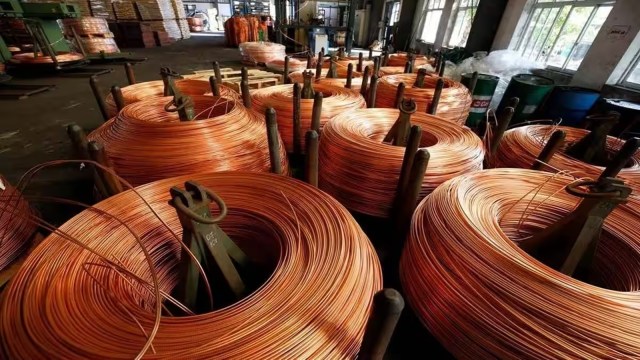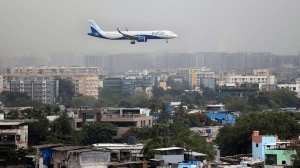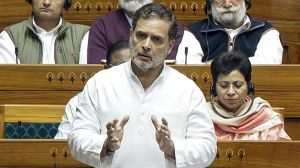With the quality control order (QCO) on refined copper effective from December 1 and Japanese suppliers—who account for 80 per cent of India’s copper imports—still awaiting certification, the downstream industry has warned the government of a looming supply crunch that could last for over three months.
Due to insufficient domestic production, India depends on imports for 30-40 per cent of its refined copper needs, a critical raw material used to manufacture electrical wires and cables. In 2023-24, it imported refined copper worth Rs 16,500 crore from Japan.

Now, with the QCO issued by the Ministry of Mines, producers across the world, including those in Japan, are barred from exporting refined copper to India without a certification from the Bureau of Indian Standards (BIS).
Currently, BIS is reviewing applications from seven Japanese firms that it received in January earlier this year. “BIS will certify two Japanese companies soon. With that, there are enough certifications,” a senior official told The Indian Express.
However, downstream user associations have told the mines ministry that a 90-day shortage has already been created due to the QCO and have sought to push the implementation date by four months. Without Japanese imports, downstream users will lose access to roughly 1 lakh tonne of refined copper over three months.
“Japanese suppliers stopped shipping refined copper in mid-October to avoid clearance issues, as it takes 45 days for cargo to reach India. Provided that the QCO is relaxed immediately, it will take another 45 days for the shipment to come here. In total, there will be a shortage for at least 90 days,” a senior industry executive said. A copper shortage can lead to a spike in input costs and halt production of wires, cables, and other electrical equipment.
With the QCO in effect, only four domestic producers—including Adani’s Kutch Copper Ltd, Hindalco Ltd, and Vedanta Ltd—and three foreign producers–one in Austria and two in Malaysia–are BIS-certified to supply refined copper to the Indian market. In 2023-24, imports from Austria and Malaysia were only 1 per cent in value terms.
Story continues below this ad
The mines ministry and BIS did not respond to requests for comment. The Embassy of Japan in New Delhi also declined to comment on the matter “as it is still being coordinated”.
The mines ministry issued the QCO on August 31, 2023, originally set to take effect three months later, to restrict the import of substandard refined copper. However, after industry stakeholders highlighted that obtaining BIS certification for foreign manufacturers typically takes 8-12 months, the ministry extended the implementation by six months.
Stakeholder representations for the extension came from the Embassy of Japan, the Embassy of India in Tokyo, the Department for Promotion of Industry and Internal Trade (DPIIT), the Indian Electrical and Electronics Manufacturers’ Association (IEEMA), the Winding Wires Manufacturers’ Association (WWMA), and several domestic manufacturers, according to documents reviewed by The Indian Express.
In a letter to the Mines Secretary VL Kantha Rao in October, 2023, then-DPIIT Secretary RK Singh had warned that enforcing the QCO without giving certification to Japanese producers would “severely disrupt manufacturing” activities.
Story continues below this ad
Singh noted that imports accounted for 26.8 per cent of India’s refined copper consumption (6.76 lakh tonnes) in 2022–23, with Japan being the primary source. “Due to notification of QCO… non-BIS certified Copper cannot be imported in India which will severely disrupt manufacturing of Copper products in India including PLIWG (Production Linked Incentive Scheme for White Goods) beneficiaries,” he wrote.
In May this year, the mines ministry extended the QCO by another six months, effective December 1, as none of the Japanese producers had secured BIS certification. In the same month, export-oriented units were exempted from all QCOs notified by the mines ministry, offering some relief to exporters. However, the bulk of copper consumption is driven by the domestic market, which includes various medium and small enterprises.
In a file noting from May, Shakil Alam, Economic Advisor to the ministry, warned of potential supply chain disruptions if the extension was not granted. “There is likely to be supply rigidity in copper cathode impacting supply chains for Indian industrial users such as electrical wires, winding wires, etc.,” he wrote.
The certification delay stemmed from a mandatory resistivity test, requiring Japanese refiners to produce thin copper wires and test their conductivity in a BIS-approved lab in India. Notably, the London Metal Exchange (LME) standards for copper do not mandate a resistivity test. Since Japanese smelters are not vertically integrated, they have faced logistical challenges in producing wires and conducting tests in India.
Story continues below this ad
“India is import reliant on copper cathode to the extent of 30%. >80% of India’s refined copper imports are from Japan, whose refiners have established supply chain relationship with Indian users. It is very likely that Japanese refiners will be able to obtain certification only in about 4-5 months’ time. In the meantime, M/s Adani’s Kutch refinery will start operation only in August, with peak production capacity of 0.5 MMTPA achievable only by Nov-Dec,” Alam highlighted.
Adani Enterprises Ltd’s newly commissioned copper smelter in Kutch is expected to reach its peak capacity of 5 lakh tonnes per annum only by 2025-26, according to details shared in the company’s latest earnings call.
Currently, Aditya Birla Group’s Hindalco leads with the largest operational refining capacity of approximately 5 lakh tonnes, followed by Vedanta at around 2 lakh tonnes. Gujarat Victory Forgings Pvt Ltd also operates with a smaller capacity of 6,000 tonnes per annum. Notably, all these producers have received BIS certification.
India was self-sufficient in copper cathode until 2018, when Vedanta’s Tuticorin plant was shut down over alleged environmental violations.

































